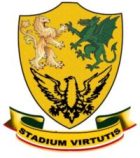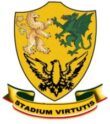Introduction to Internet of Things (IoT) – Certificate Program
About This Course
The “Introduction to Internet of Things (IoT) – Certificate Program” offers a comprehensive exploration of IoT, delving into its principles, technologies, and real-world applications. Participants will gain insights into the interconnected network of physical devices, sensors, and actuators, along with the underlying architectures and communication protocols that drive IoT systems. Through a blend of theoretical lectures and hands-on labs, students will develop practical skills in designing, implementing, and managing IoT solutions.
Learning Objectives
Understand the fundamental concepts and principles of the Internet of Things.
Explore the architecture and components of IoT systems.
Learn about IoT communication protocols and data processing techniques.
Analyze real-world applications of IoT across various industries.
Develop hands-on experience with IoT hardware, software, and platforms.
Material Includes
- Required Textbooks:
- "Digital Marketing for Dummies" by Ryan Deiss and Russ Henneberry
- "IoT Solutions in Microsoft's Azure IoT Suite: Data Acquisition and Analysis in the Real World" by Scott Klein
- "Designing Connected Products: UX for the Consumer Internet of Things"
- Supplementary Resources:
- Online articles and research papers
- Documentation and guides from IoT hardware manufacturers and platforms
- Video tutorials and lectures on IoT technologies and applications
- Requirements:
- Basic understanding of programming concepts and networking fundamentals. Familiarity with hardware components and sensors is recommended but not required.
Requirements
- Basic Programming Understanding: Participants should have a foundational knowledge of programming concepts, including variables, data types, loops, and conditional statements.
- Networking Fundamentals: Familiarity with networking concepts such as IP addressing, TCP/IP protocols, routing, and switching is beneficial for understanding IoT communication protocols and architectures.
- Hardware and Sensor Awareness: While not mandatory, prior exposure to hardware components and sensor technologies can aid in grasping IoT device functionalities and connectivity options.
- Computer Skills: Proficiency in using computers and navigating software applications is essential for hands-on lab exercises and project development.
- Recommended Background: While not mandatory, a background in computer science, engineering, or a related field can provide a deeper understanding of IoT principles and technologies.
- Requirements for the Digital Marketing Course:
Target Audience
- This certificate program is suitable for professionals and enthusiasts seeking to understand and harness the potential of IoT technology. Whether you're a software developer, engineer, or business professional, this course offers valuable insights and practical skills to navigate the rapidly evolving landscape of IoT.
Curriculum
1 Lesson





